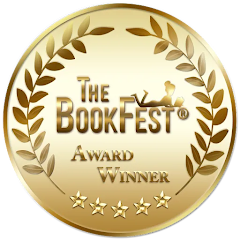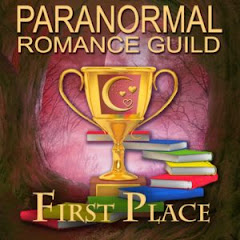What made you decide to be an author? I started writing
fiction in the 3rd grade. I had stories in my head and had to express them.
When I grew up I wanted to get my work published.
What do you like best about being a writer? What do you like
the least? I like being able to create a world where people behave the way I
want them to. I like starting a new novel or story, but the process of
finishing that first draft is almost like having a term paper due every night.
It's work!
How do you think your life experiences have prepared you for
writing? I've had a lot of ups and downs, betrayals by people close to me and
life changing events––some good and some awful. I think those experiences have
helped me as a writer. Travel counts as some of the good life changing events.
I got the idea to write A Palette for Murder because I took traveled to New Mexico on several
occasions, and ended up living there for several years. While I was living in Santa Fe my house burned
down and I lost almost everything, including an early version of A Palette for
Murder. That counts as one of the worst experiences of my life. To make matters
worse, my insurance company told me they had never approved my policy so they
weren’t going to pay. But since they cashed my premium payments every month,
they had to stop denying my claim. On the upside, fictionalized versions of
that fire have popped up in several of my novels.
My recent trip to Cuba at Christmas has also given me
some ideas for new stories. Far from being a “police state,” as we have been
led to believe, the Cubans seem reasonably content with their government, enough
to poke fun at it. While spending four days in Cuba doesn’t make me an expert,
what I discovered was people leave Cuba not because of government repression
but because they want a better standard of living. They can own a house in the
city and in the country, but they can’t buy new houses, because no banks have
financed new housing projects in Cuba since the embargo. That means
people have to live in the homes of their parents or grandparents. Also cars and
travel are expensive (yes, Cubans are allowed to travel) and public
transportation is spotty. My tour guide lives in the country because she feels
that’s a better place to raise a child, but she has to take a succession of
taxis to get to work. And it takes her an hour and a half. The vintage cars are
mainly owned by taxi companies who cater to tourists. To improve their standard
of living many people make money on the black market. Unless they do it on a
large scale, the government looks the other way. This is why I saw many Cubans
arriving at the airport with a pile of hats on their heads they planned to
sell. They get the same TV shows we get. They like their healthcare system and
the fact that college is practically free. It’s also a more liberal place for
artists and musicians than it was in the 1970s when the government forbid
listening to Beatle’s music.
Especially inspiring on my trip was visiting the Hemingway Museum, the house where Ernest Hemingway
lived for a number of years. It’s about fifteen miles outside Havana. According to my tour guide, Mary
Hemingway deeded it to the Cuban government if they would keep it intact as a
museum. However, as some online articles point out, the Cuban government
confiscated it. At any rate, it’s a quiet, idyllic spot in a tropical
setting––a great place to write.
Another highlight of the trip was a talk by Marta Nunez, the
Minister of Gender Relations. She discussed the problems Cuba faces. She
is a sociologist and former Harvard professor, whose family supported the
Revolution in the early days. According to Nunez, the fact that men have
compulsory military service and women do not has resulted in more women
becoming college graduates, but because of that, men lag behind intellectually.
That results in more divorces, and one-child families––not from family planning
but because the marriages don’t last long. In addition, it is a machismo
society. Women raise their sons to be manly––gays are not that tolerated––and
to view housework and childrearing as “women’s work.” As I said, Cubans are not
reluctant to criticize their country.
Have you ever felt as if you were being dictated to while
you wrote a book--as if the words came of their own accord? If yes, which book
did that happen with? Yes, that's happened to me, especially in my vampire
mystery trilogy Horror At The Lake. In The Blood Of Redemption, the final book
in the series I felt that the characters told me who they were and what quirks
they had.
You’ve written 6 novels and are working on a 7th novel.
What’s your favorite time management tip? I wish I had one. I usually write
later in the evening, after dinner when I'm writing a first draft because I'm a
procrastinator. But once I finish the first draft I'll spend days rewriting it,
losing track of time, forgetting to eat and forgoing social events. The only
thing I never miss is my daily walk in the park near my house. It's a beautiful
place with a pond and waterfalls.I do my best thinking and I love observing the
waterfowl.
Are you a plotter or a pantser, i.e., do you outline your
books ahead of time or are you an “organic” writer? I do both. I have a brief
outline of how it begins, who some of the characters are and how it ends. But
how they get from the beginning to the end keeps evolving as I write.
If you had one take away piece of advice for authors, what
would it be? Listen to what people say--what they talk about and how they talk
about things. I get a lot of my ideas from conversations I overhear.
Did music help you find your muse with this book? If yes,
which song did you find yourself going back to over and over again as you
wrote? None. I don't listen to music when I write.
Tell me more about A Palette for Murder.
Lana Davis arrives in New Mexico
from Los Angeles,
planning to look up a former boyfriend and take in some sightseeing. But this
all-expense-paid trip is not a vacation. She’s here to find Antonio Chavez,
last seen in Santa Fe.
He’s the missing beneficiary of a large life insur-ance policy her company
issued. The heat is on because a disgruntled heir insists he should receive the
proceeds instead. However bogus his claim is, the public relations nightmare he
causes for her company is real. If Lana doesn’t find Antonio, her job is on the
line.
Lana's search for Antonio brings her into the inner circle
of a powerful art gallery in Santa Fe,
owned by the daughter of a wealthy family. Although Lana's knowledge of art is
limited to the one art history class she took in college, she soon discovers
that when art and greed collide, the result is deadly. Her knack for finding
dead bodies makes the police nervous--and finding herself a target for murder
is more than she signed up for..
How about an excerpt from A Palette for Murder?
Miguel Garcia raised his fists and got in my face. I rolled my chair back. I didn’t want to be in the line of fire if things escalated. Where was Security when you needed them?“I’m the one who signed on her death certificate, Ms. Whatever,” Miguel insisted.The sign on my desk stated my name was Lana Davis, but I didn’t want to push the issue.“Antonio hasn’t been around for years,” Miguel growled. “I took care of her, and he thinks he gets everything. He’s just a little guy . . . with a big guy complex. A nothing.”Maybe everything Miguel said was true. His cousin Antonio was a bragging little runt who’d never amount to anything. Miguel was a big guy, so he knew what that meant. But as a six-foot blond female, I knew what that meant, so I found myself sympathizing with Antonio’s plight, especially when I considered the source of the complaint against him. Miguel had an ax to grind. He wasn’t the one getting the money. Antonio was.I glanced at the death certificate Miguel threw on my desk. “Mr. Garcia, thank you for bringing this to our attention, but it states on your great-aunt’s policy, Antonio Chavez is her beneficiary. I’m sorry. We can’t authorize any payment to you.”Somehow, I didn’t picture Miguel as a loving caretaker. But that wasn’t for me to speculate. His great-aunt had lived until eighty and died before her policy lapsed. Her file seemed to be in order and now one of her grandnephews, a certain Antonio Chavez, was to inherit five-hundred-thousand dollars. As of yet, he hadn’t come forward to claim it.“I’m next in line,” Miguel said. “If you don’t find Antonio, you have to give it to me. It says so in her will.”Whether it did or not was above my pay grade. “We’ll let you know, Mr. Garcia.” My response did little to placate Miguel. But I didn’t care. If I let all the Miguels of the world bully me . . . besides, the security guard had wandered by, and I felt safe.It wasn’t my job to find Antonio Chavez, or any beneficiaries of policies issued by First Century Life, where I worked. It was up to Antonio Chavez to find us to get his money. Most of the time we didn’t know about the death of a policyholder, unless a beneficiary came forward. But with large policies, such as this one for Maria Escobar, Miguel Garcia’s great-aunt, we got letters from lawyers or trustees handling the estates.Although it was unusual for an heir, especially one not named on a policy, to come into our office, I would have forgotten about it, except someone claiming to be Antonio Chavez showed up a day after Miguel did. He fit Miguel’s description of Antonio. He was a little guy with a big mustache and big muscles, despite his short stature. My boss Charley, a big, white-haired Swede with a ruddy complexion and an infectious laugh, told him to wait in my office. I didn’t say much to the man. I knew Charley was checking out his story.Twenty minutes later two uniformed police officers entered my office. “Mr. Chavez, is it? We need you to come with us,” one of them said.They escorted the man out. Charley told me later the man showed up with a phony driver’s license.A few weeks later Miguel Garcia filed a complaint against us with the state and with the Better Business Bureau. Of course, the complaints were bogus. We couldn’t give him the money. But Charley felt the complaints affected our ratings with the public, so he hired a detective agency to find Antonio Chavez. After they charged mega bucks and turned up empty-handed, Charley was in a quandary. To make matters worse, Miguel posted nasty comments about First Century Life on Internet complaint sites.The claims department, where Charley and I worked, was on the second floor of the First Century Life building in West L.A. And now the big boys on the penthouse level, ten floors up, were on Charley’s case. But they wouldn’t give him much of a budget to hire another detective agency. That’s when Charley turned to me. “How would you like to go to Santa Fe?” he said.“Yeah. Are we having a conference there?”“No. But that’s the last known address for Antonio Chavez. It’s your claim. You’re going to have to find him. So don’t get us fired.”Great. “What do I know about finding anybody?”Charley stared at me. “I know what you do on your lunch hour.”It was a common but unspoken practice that employees at First Century Life often used the company’s accounts at official research sites to look up people for unofficial reasons. The company conducted their own background checks on all employees and on certain policyholders, and that’s why they had these accounts. I had undergone such a background check before First Century Life hired me.The searches themselves, with the exception of the credit checks, weren’t illegal. People could do them online, if they paid. But using the company’s accounts was cause for termination. Yet we did it anyway, considering it one of the perks of the job. I caught Charley doing a search once. He didn’t realize I saw him. I knew better than to mention that now. And I knew Charley. He liked me, but when push came to shove, if didn’t find Antonio, I’d be the one fired, not him.That detective agency wasn’t stupid. Most likely, they had combed that town looking for him. The one positive aspect of this bummer assignment, aside from playing tourist in Santa Fe, was earlier in the year, during one of my searches, I discovered an old boyfriend lived there. To use the cliché, he was the man who got away. What would happen when I came face-to-face with Alan Finley in Santa Fe? It might be fun to find out, especially when I didn’t have to pay for the trip. Maybe he’d take me in if First Century fired me.
Where can readers find more about your stories, books and
you on the Internet?
Website: http://vanessaaryan.com
Facebook: https://www.facebook.com/VanessaRyan33
Twitter: https://twitter.com/Vanessa_A_Ryan
Vanessa A. Ryan, thank you so much for being with us here
today. I know my readers will enjoy your work and your interview.





















































No comments:
Post a Comment